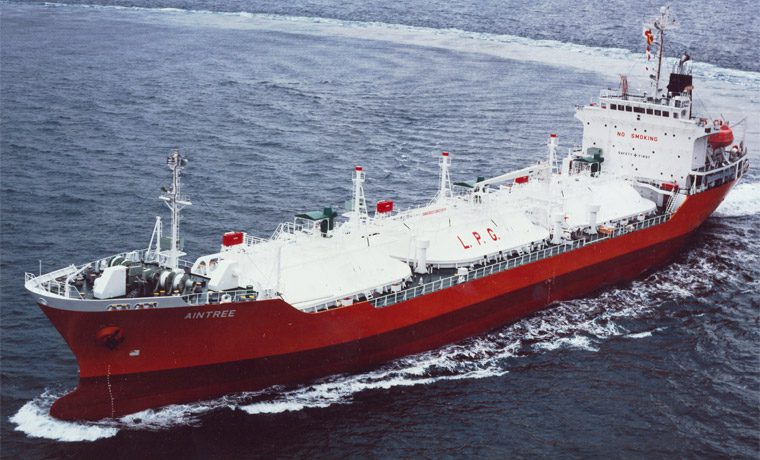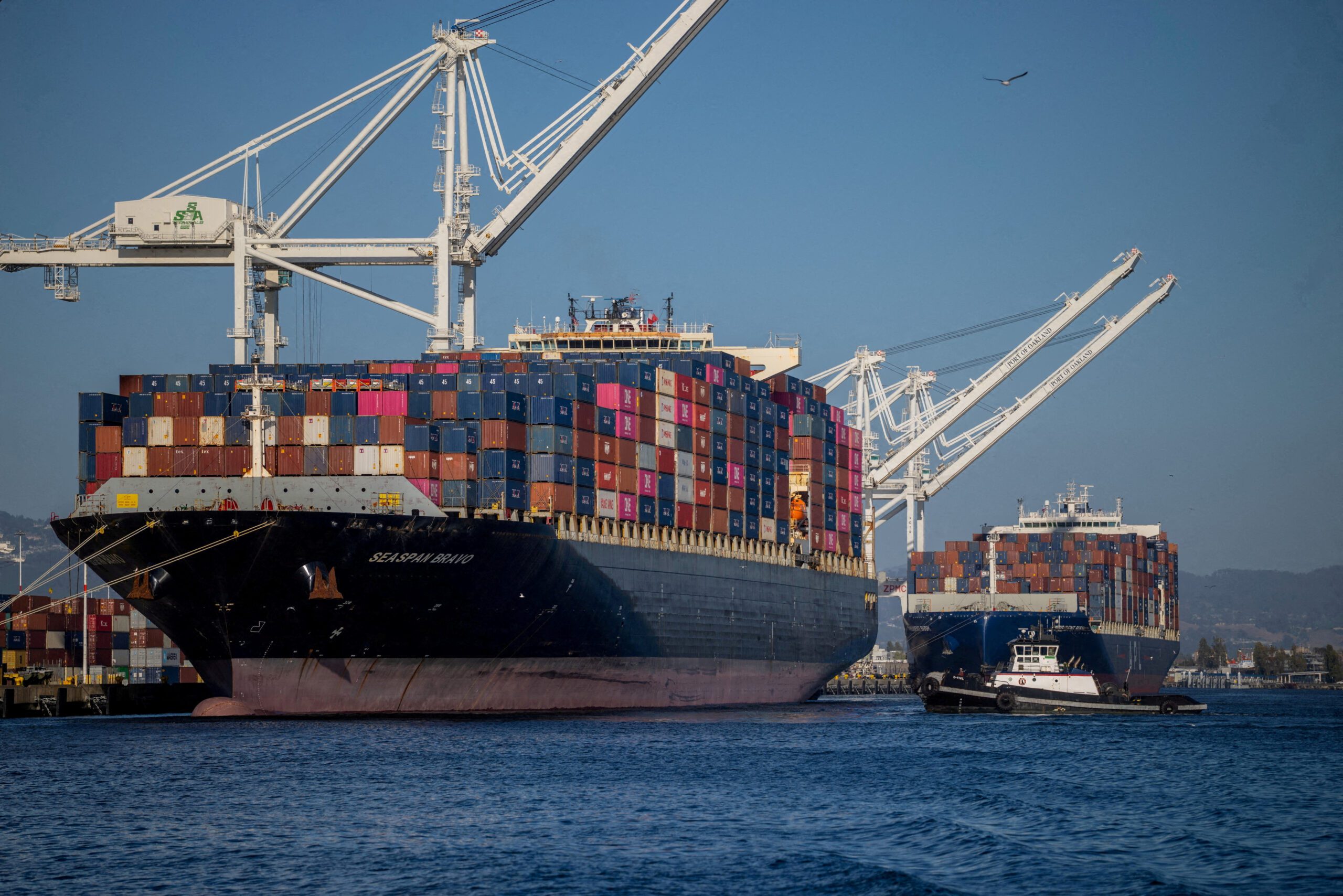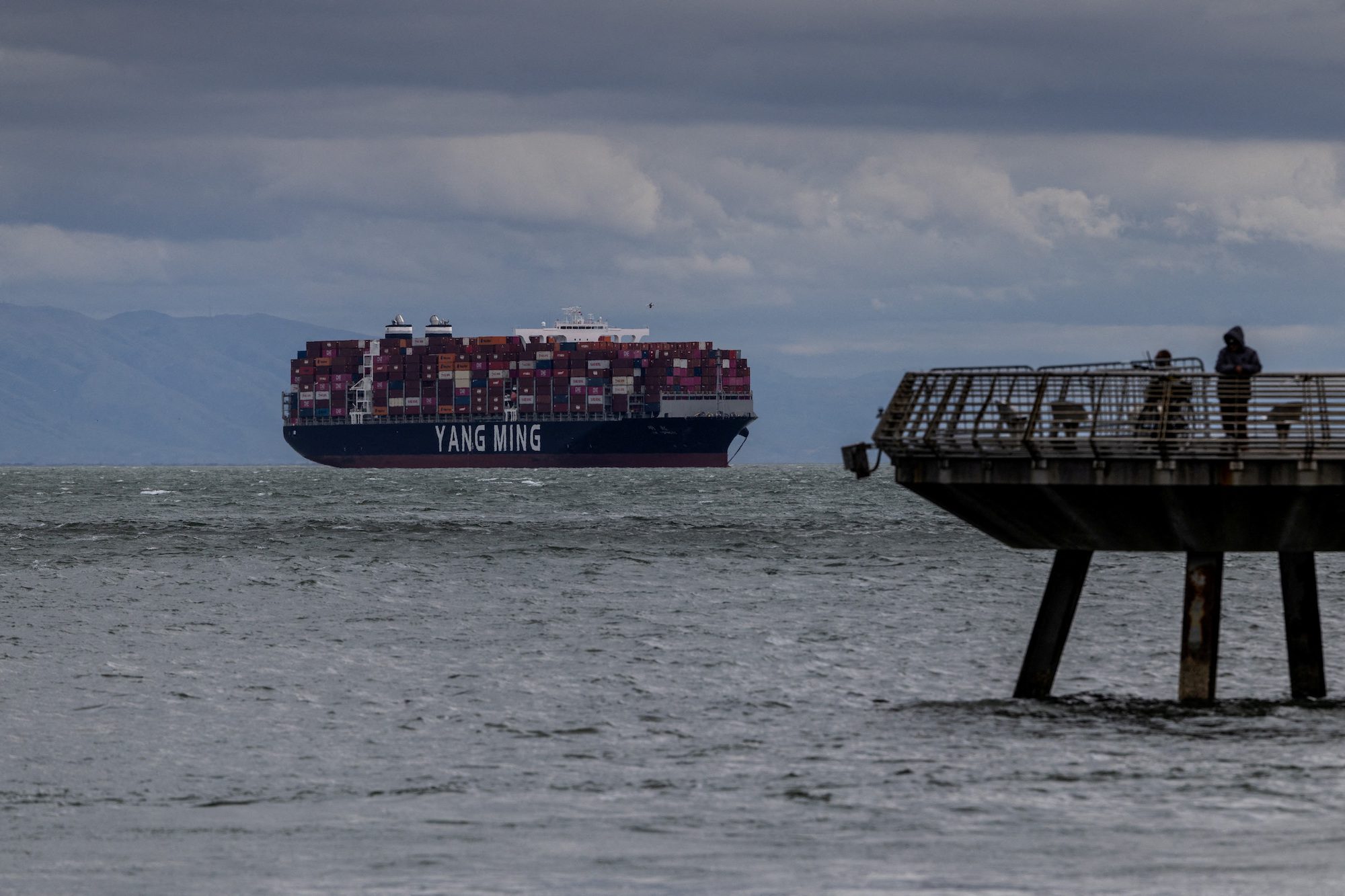VLGC Aintree, image (c) Petredec
(Bloomberg) — The cost of shipping liquefied petroleum gas headed for the biggest weekly gain on record as surging U.S. exports of the cooking fuel and chemicals feedstock sap vessel supply.
Rates for very large gas carriers already jumped 24 percent to $68 a metric ton since May 10, according to the Baltic Exchange, a London-based publisher of shipping prices on more than 50 maritime routes. That would mark the largest weekly rally in data going back to 2005 if costs stay the same today or rise, according to the bourse.
The U.S. is shipping more LPG than ever as a byproduct of record natural gas output, Energy Department data show. Trading is expanding because the fuel is cheaper in the U.S. than Europe, according to Diego de Potter, deputy chartering director at Exmar NV, the Antwerp, Belgium-based operator of two VLGCs. Port expansions and rising voyages to Asia adding cargoes and employing carriers for longer, said John Lording, who specializes LPG at Clarkson Plc, the world’s largest shipbroker.
“The VLGC market is quite finely balanced, so you only need to have an extra handful of cargoes and the market reacts very positively,” Lording said by phone today. “Owners are very happy.”
Enterprise Products Partners LP more than expanded monthly capacity at its Houston export facility by 3.5 million barreles to 7.5 million barrels in March. The U.S. produced a record 29.8 trillion cubic feet of natural gas last year and exported an unprecedented 71.9 million barrels of LPG, according to Energy Department data. The country’s exports rose 15 percent to 5.9 million barrels in the year to February, the most-recent data show.
Nippon Yusen
The publicly traded ship owner with the biggest fleet of the largest LPG carriers is Nippon Yusen K.K., based in Tokyo, according to data from Clarkson’s research unit. Shares of the company, which also operates vessels including oil tankers, coal and iron-ore transporters, and car carriers, will rise 8.3 percent to 287.08 yen ($2.81) in a year, according to the average of 12 analyst forecasts compiled by Bloomberg.
One gallon of propane costs 94.25 cents in Houston, compared with $2.07 in northwest Europe and $2.95 in Japan, according to data compiled by Bloomberg.
– Isaac Arnsdorf, Copyright 2013 Bloomberg.

 Join The Club
Join The Club











